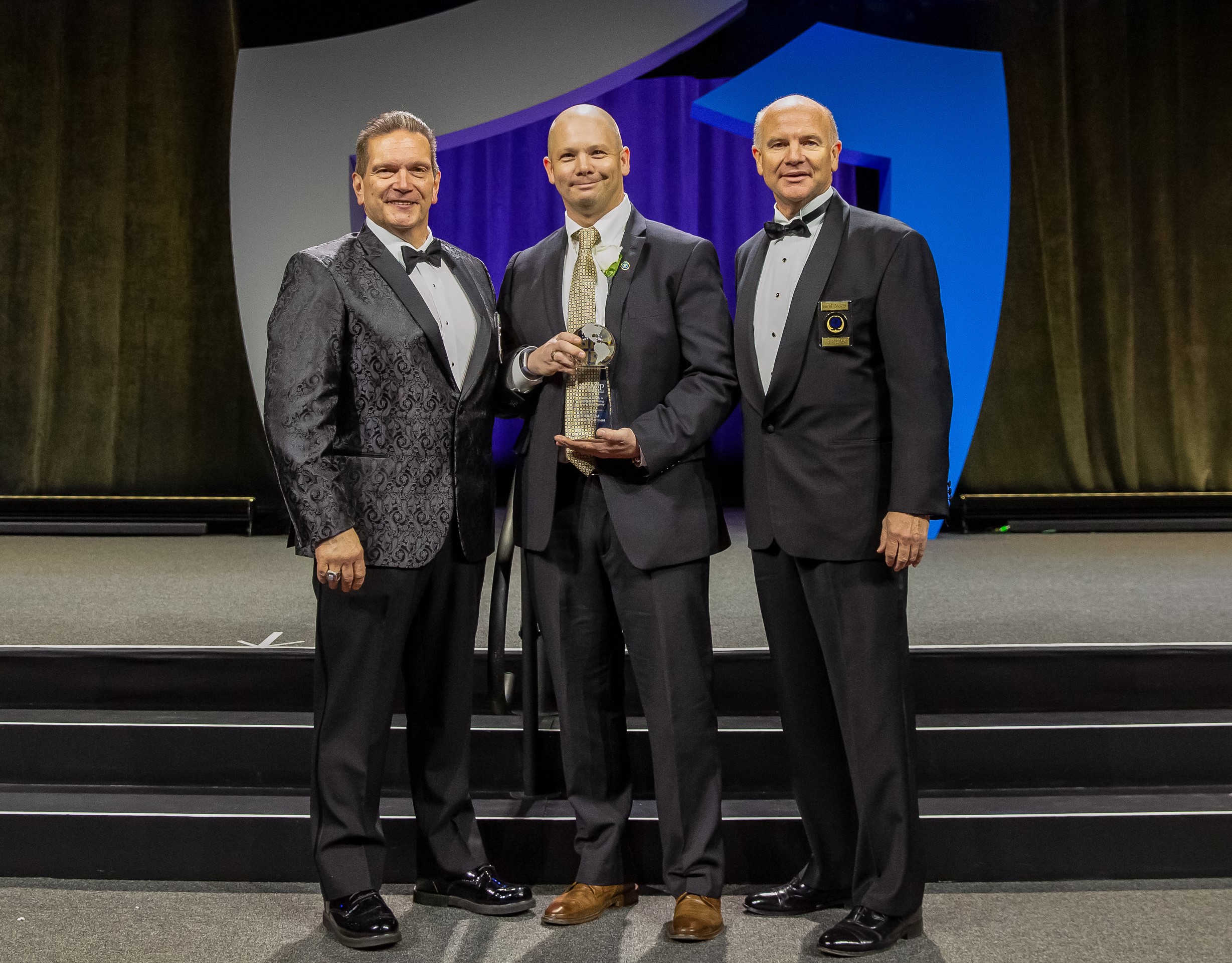IACP Leadership in Community Policing Award
The IACP Leadership in Community Policing Award recognizes promising practices that utilize effective and long-lasting partnerships to make local, national, and global communities safer.
The 2024 award nomination period is now closed. Complete the 2025 Awards Interest Form to receive information as it becomes available.
This award honors agencies for programs that exemplify the principles of community policing and strengthen community trust through active and inclusive community collaboration.
For further information, contact [email protected].
2024 Winners
Small Agency
Douglas Police Department, Wyoming
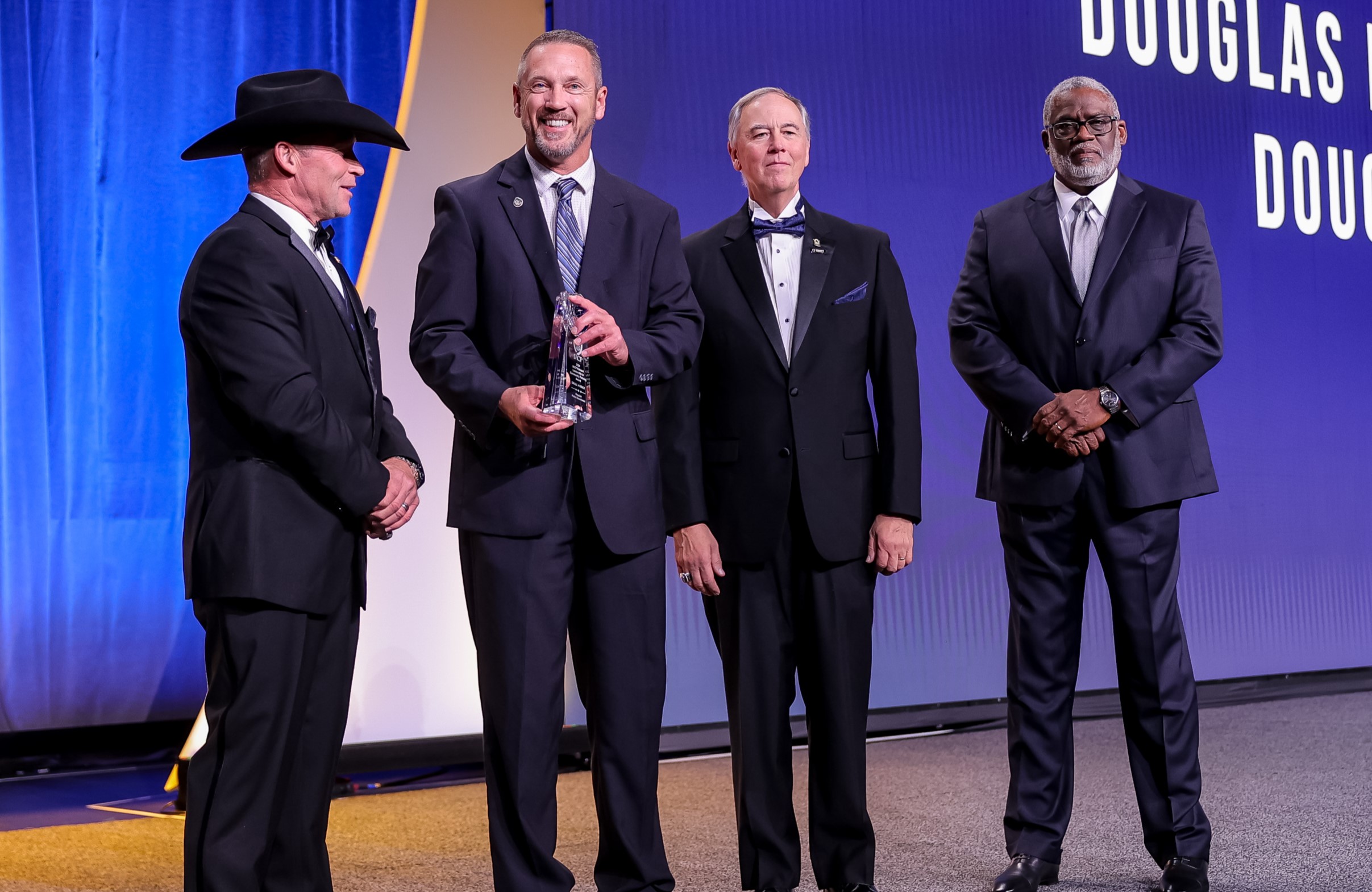
Committed to the IACP Trust Building Campaign, the Douglas Police Department partnered with several local citizens and financial institutions in 2021 to establish a Secret Santa Fund to implement community policing engagement opportunities. Since implementation, the program raised over $21,000, which is utilized for engagement events such as Cops and Bobbers, Bowling with Badges, and team building exercises at local community events where community members earn “Jackalope Bucks” for shopping local. These small acts of kindness through engagement opportunities enhanced positive relationships with police officers and teach citizens how to interact safely with police.
Midsize Agency
City of Shaker Heights Police Department, Ohio
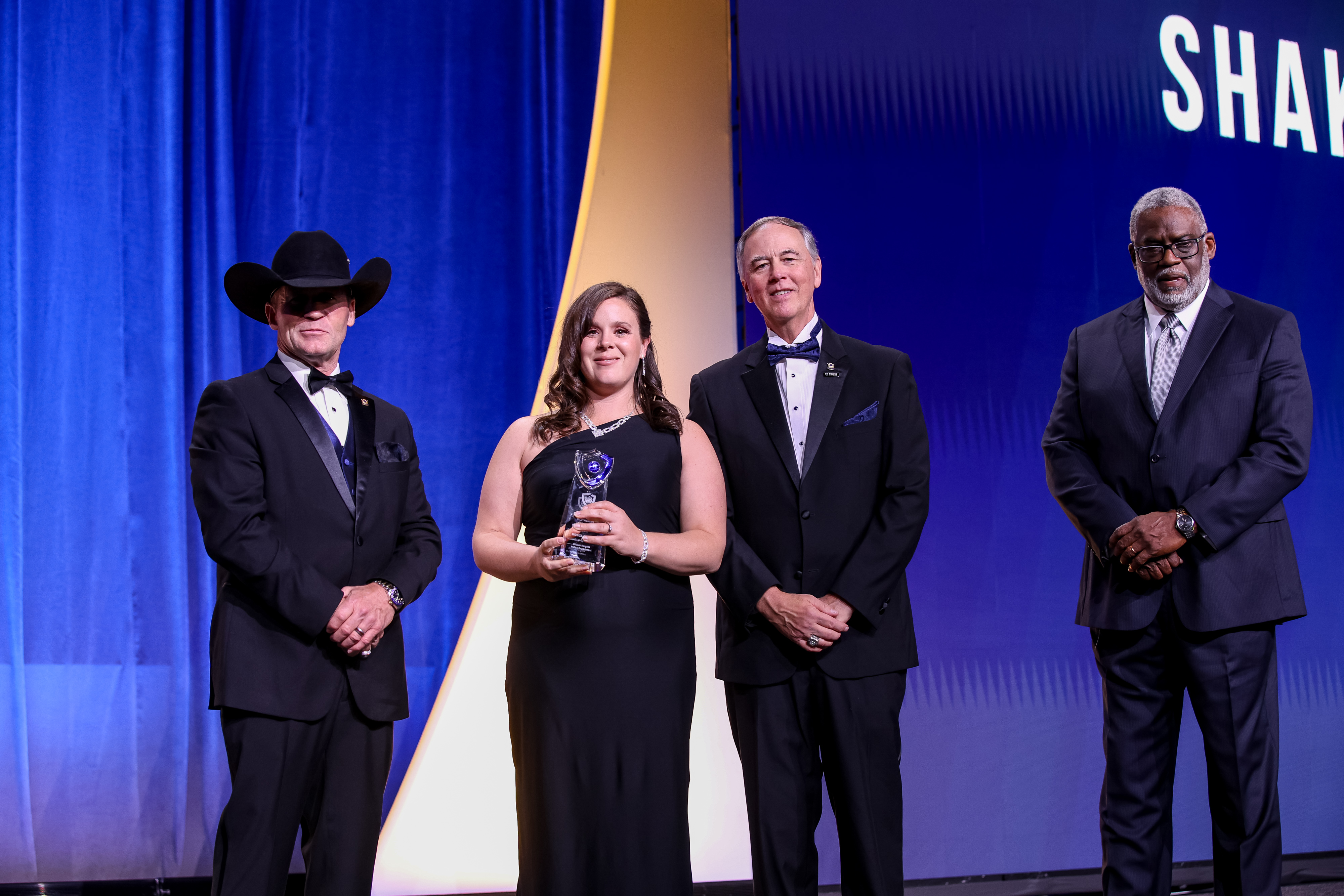
Committed to the IACP Trust Building Campaign, the Shaker Heights Police Department recognized the need in 2022 to implement a mental health response team to assist the police with behavioral health crisis calls. Since inception, the mental health response team expanded into a regional service provider for nearly 120,000 community members. Expansion of the mental health response team includes a licensed mental health clinician who provides diversion assistance to those in need, while also providing support to first responders. The impact of this program resulted in a reduction of use of force and increased trust with families of those receiving services.
Large Agency
Madhya Pradesh Police Service, India
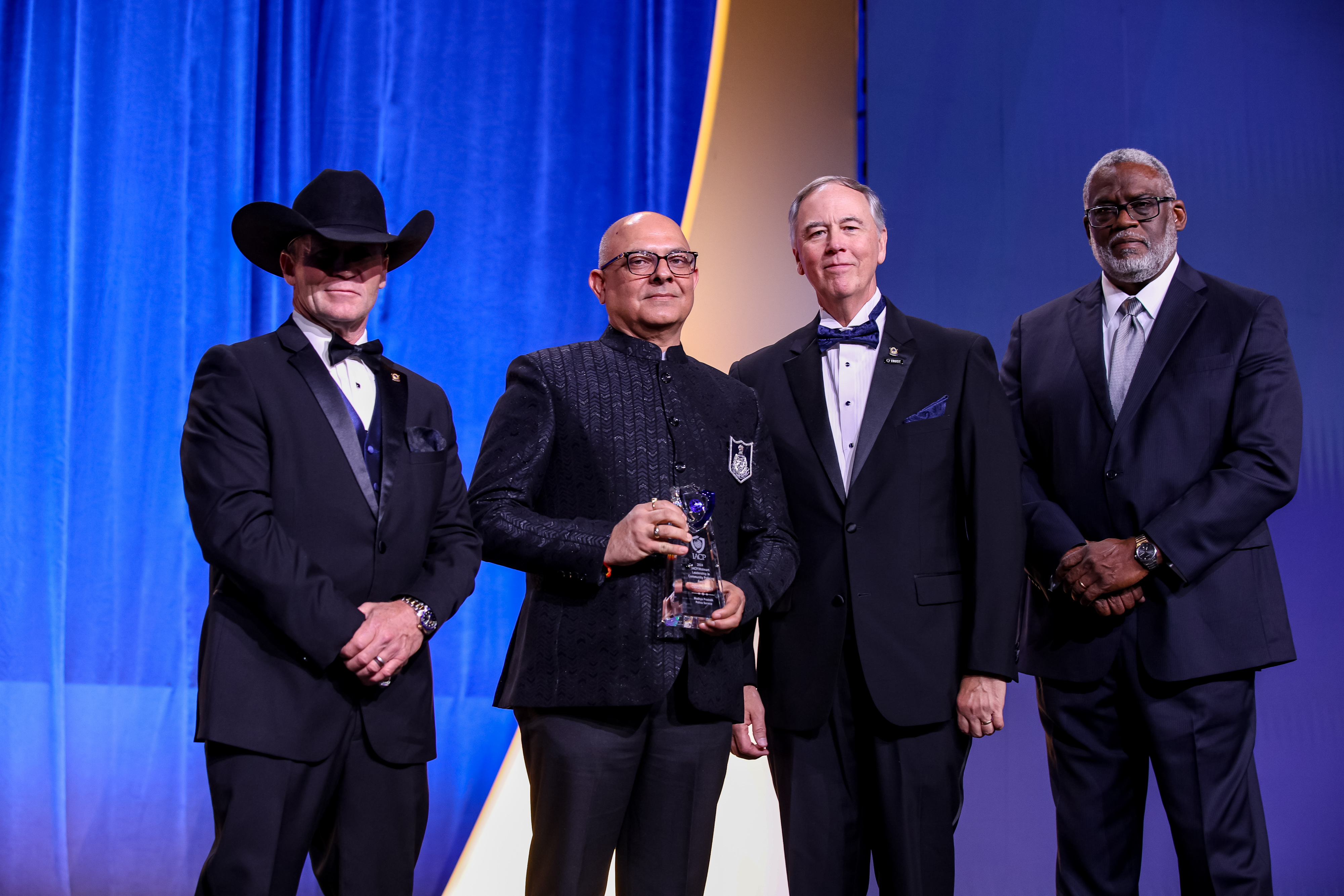
Committed to the IACP Trust Building Campaign, the Madhya Pradesh Police Service utilizes the SRIJAN program of community policing focused on empowerment and access to justice for youth, particularly adolescent girls in poor neighborhoods, who face sexual harassment and personal safety concerns. Youth in these impoverished areas experience social subordination and lack of education, and they often are victims of child marriage, human trafficking, and domestic violence. The SRIJAN program provides life skills, self-defense training, education, and vocational skills to improve self-reliance. This innovative multifaceted program promotes unity, trust, legitimacy, and enhanced quality of life for the families and communities, evidenced by a 23% reduction in overall crime within the first two years of the program. Combined with the innovative solutions devised through this program, the efforts of community policing are being replicated in other areas of police services demonstrating a culture of community within the Madhya Pradesh Police Service.
2023 Winners
Small Agency
Central Falls Police Department, Rhode Island
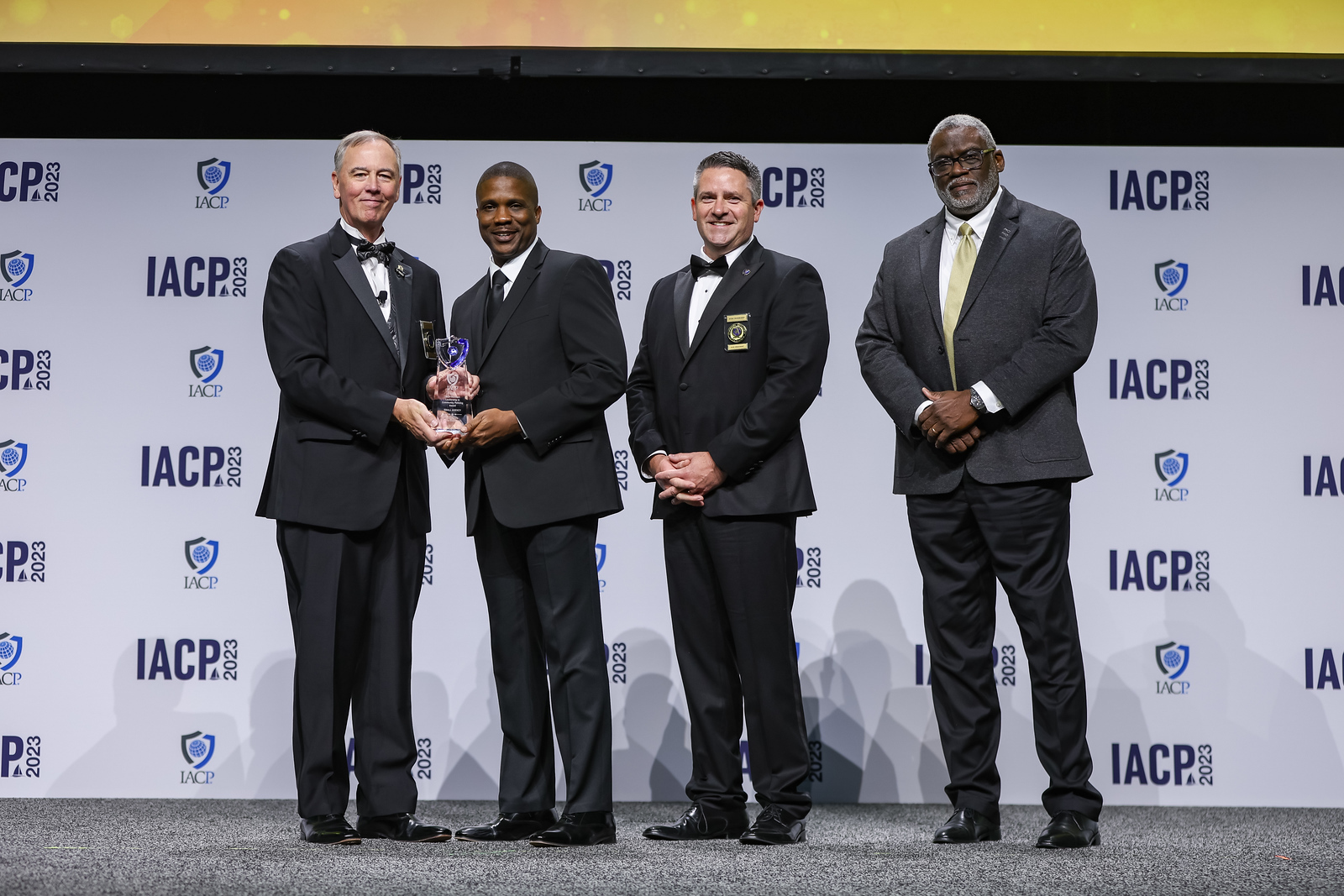
The Leading Ladies Initiative advances the IACP Trust Building Campaign by strengthening community trust through inclusive community collaboration, mentoring teenage girls to prepare them for higher education, job interviews, and employment opportunities. Participants are mentored by women serving in various roles that include executive directors, police commanders, elected officials, and prominent business leaders. To aid with higher education, participants receive a $2,000 scholarship. The two-day program helps community members engage youth, allowing them to develop a support mechanism of mentors for long-term success. The program culminates with a formal dinner. To date, nearly all graduates remain connected to the program of over 50 mentors. The program exemplifies how agencies can apply the tenets of the IACP Trust Building campaign through innovative efforts that build trust and legitimacy with the communities they serve.
Midsize Agency
Apache Junction Police Department, Arizona

Maximizing positive community engagement through safe, professional, and courteous conduct and dialogue, the Apache Junction Police Department’s involvement in Faith and Blue enhanced communication and trust with the police and the community they serve. The community engagement activities of the Apache Junction Police Department demonstrate to the public that they are involved in all areas of the community with a commitment to continually look for ways to engage in mutually respected environments. Their efforts allow the agency to engage with mental health providers, social services, community food banks, faith-based organizations, and others in the community. Their community engagement efforts exemplify how agencies can apply the tenets of the IACP Trust Building campaign through innovative efforts that build trust and legitimacy with the communities they serve.
Large Agency
Dubai Police, United Arab Emirates

The Dubai Police Positive Spirit offers an efficient alternative to traditional policing and creates secure residential areas by promoting social responsibility and improving social behavior. To achieve this, a comprehensive security report was conducted reviewing 243 reports. Experts focused on crime prevention and sports programs excellence to develop best practices by collaborating with the United States, leading to the introduction of Night Basketball Championships, which ultimately led to a decrease in crime rates. The highly successful, multi-government and private organization partnerships, contributed to reducing negative incidents and promoting social responsibility such as, The Arab Award for Social Responsibility and Mohammed Bin Rashid Al Maktoum Creative Sports Award.
Promotion of this initiative on social media resulted in more than 2.5 million views and resulted in fiscal savings of over $650,000 AED monies. This innovative community engagement effort exemplifies how agencies can apply the tenets of the IACP Trust Building campaign through innovative efforts that build trust and legitimacy with the communities they serve.
2022 Winners
Small Agency
New Brighton Department of Public Safety, Minnesota
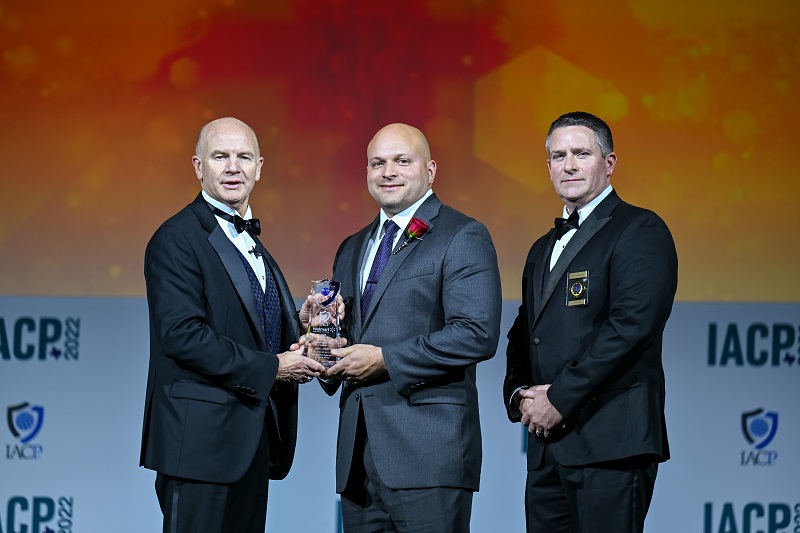
The Police-Faith Community Partnership (FCP) is an effort to engage local churches in advancing the ideas of 21st century policing through trust building and officer wellness. They work collaboratively to address community issues while improving the quality of life for residents and supporting those on the frontlines. The program started in 2016, when the New Brighton Department of Public Safety recognized it lacked a connection with its faith community. The FCP has been institutionalized not only within the department but across the municipal government. In addition to the quarterly meetings, the FCP has also expanded by sponsoring a community chaplain to provide internal, proactive spiritual care for the department. The FCP program has brought together two institutions that are service-oriented to improve the lives of people in the community and its officers.
Midsize Agency
Colorado Springs Police Department, Colorado
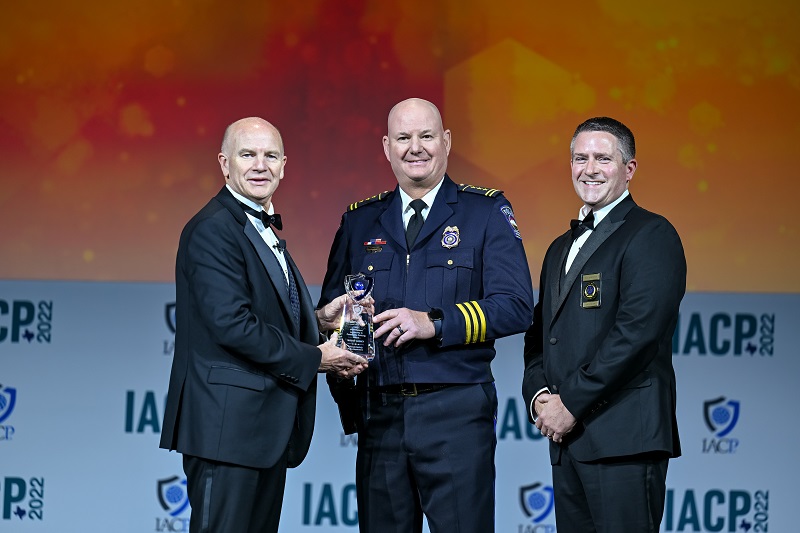
For years, officers with the Colorado Springs Police Department (CSPD) have used their own funds to purchase sports equipment, toys, and other items for the community. The CSPD saw both a need and an opportunity to formalize these efforts. The CSPD Community Relations Unit Developed Play COS. Play COS had a simple mission to supply CSPD's patrol division with sport balls to distribute to kids during their shift. The program also involves the department hosting sports related events for the community. Though not a new idea, Play COS has been impactful in bringing the community together. The Play COS program has received wide support from across the community. In its first year, Play COS gave away more than 1,200 sports ball and hosted 25 events. The program has not only been received positively by the community but by the officers as well.
Large Agency
Gadchiroli Police, Maharashtra, India
Gadchiroli Police work on two strategies which include minimizing violence and connecting the local population with the government. During the implementation of these strategies, the Gadchiroli Police learned there needed to be processes put in place to make interactions with the government more accessible for tribal population. The Gadchiroli Police created a public relations team to engage the public with transparent, up to date information through social media and other forms of mass media.
2021 Winners
Small Agency
The University of Texas at Arlington Police Department
The University of Texas at Arlington Police Department (UTA) worked with internal and external stakeholders to create an interactive and impactful educational program for active shooter or active threat situations to enhance community understanding of response options for these situations. The UTA Police Department provided active threat situations through in-person seminars touching limited portions of the community. The community is engaged to be a partner in enhancing the safety and security of the campus through educational programs and community policing-centric programs. Officers are assigned to residential areas to provide specific points of collaboration to address questions and enhance problem solving efforts for community concerns. The goal of providing impactful active threat training for every member of the campus community is a high priority.
Midsize Agency
University of Maryland, Baltimore Police Department
Developed in 2018, the University of Maryland, Baltimore Police Department (UMBPD) Community Outreach and Support Team (COAST) was developed to build partnerships and make a difference in the West Baltimore community. COAST's community programs start from a young age, with officers mentoring students after school in the Police Athletics/Activities League (PAL) program and teaching Drug Abuse Resistance Education (DARE) weekly in Baltimore City schools. During the COVID-19 pandemic, PAL moved online, offering virtual mentoring and coaching each week. UMBPD police and security officers delivered boxed lunches to the homes of PAL students and their families to ensure they were still receiving much-needed resources during the pandemic. The Community Engagement Academy invites members of the community to get a behind-the-scenes look inside the UMBPD, from what it is like to enter the police academy to the daily decision-making process for law enforcement officers. The Academy also allows the community to interact with and provide feedback to the UMBPD officers.
Large Agency
Ajman Police General Headquarters
The Ajman Police created the Community Police Unit as a permanent organizational unit within its organizational structure to implement tasks including finding solutions to community problems, strengthening the bonds of friendship with the community in accordance with culture and the surrounding environment, establishing and building relationships with the community, and developing a sense of security by providing information and assistance in law enforcement and combating crime. With the creation of public and private partnerships, the Community Police Unit was able to use initiatives to help boost community involvement. Partnerships include the Municipality and Planning Department with the Clean Up the Emirates initiative, Emirates Islamic Bank with the initiative Faraj Hammi & Asaad Usrati, Ajman Charitable Society, and the Emirates Red Crescent with We Are All Family initiative. Ajman Police uses operational framework of Community Policing to spread the concept of Community Policing throughout the community, helping the community become familiar with their active role and key partnership in achieving security through voluntary cooperation.
2020 Winners
Small Agency
Muskegon Heights, Michigan, Police Department
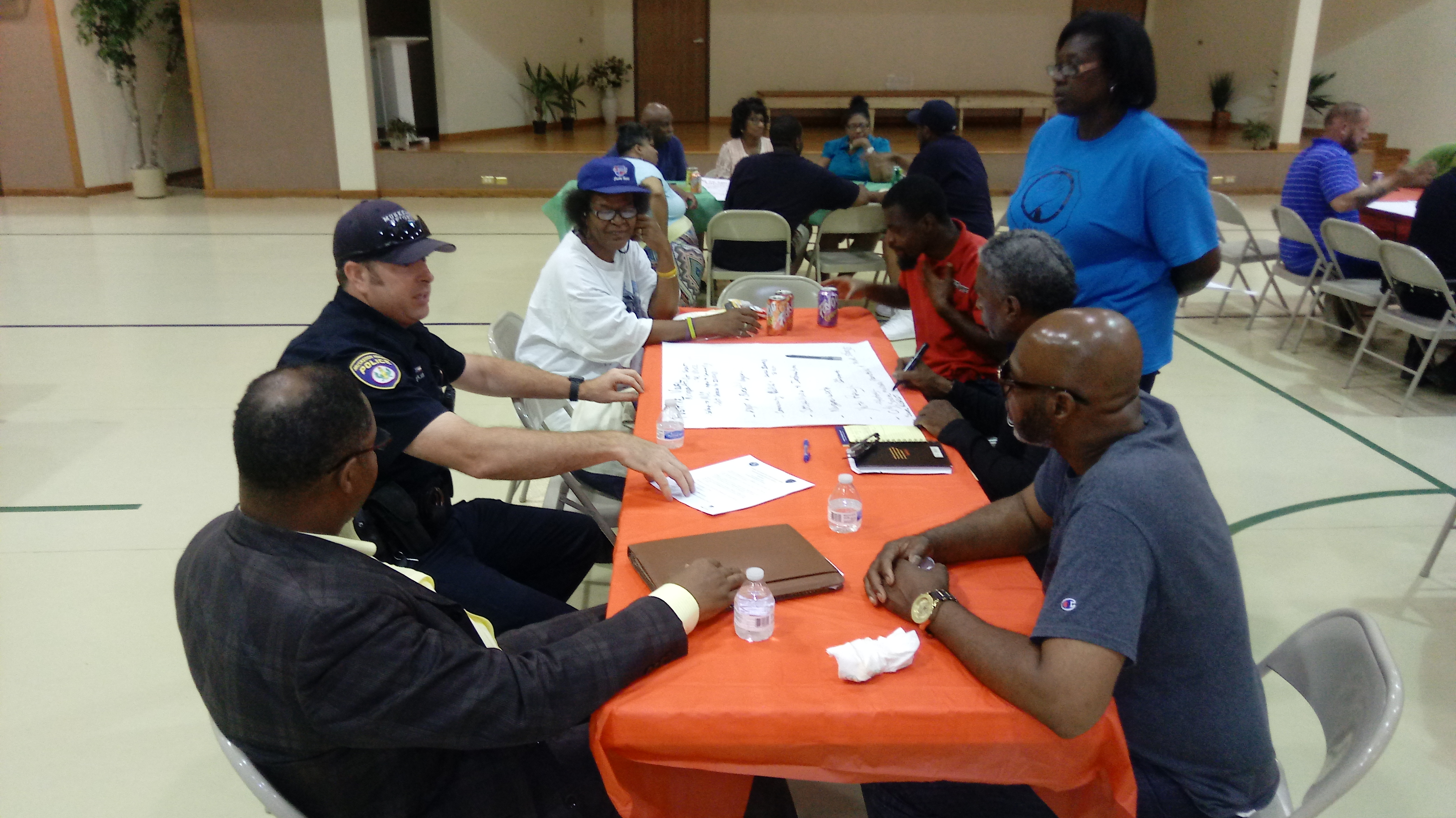
The Gaining Unity through Non-violent Solutions (G.U.N.S.) was implemented in the city of Muskegon Heights, Michigan, designed to curb and reduce gun violence. The program enforced community policing strategies by encouraging innovative collaboration between law enforcement and the community. The City of Muskegon Heights Police Department (MHPD) held community-based meetings to hear directly from residents and to understand the challenges the city faces. Through these meetings, MHPD gained support from community stakeholders to address gun violence. The city offered the Guns for Groceries Program where anyone who turned in a gun during the event received a voucher for groceries. During the 1-day event, more than 250 guns were turned in. MHPD and its partners took a proactive approach to tackling and reducing gun violence. The community-based meetings have grown from 24 to more than 300 participants. Since the start of the program, the city has seen an overall reduction in gun violence across the city.
Midsize Agency
Shakopee, Minnesota, Police Department

The City of Shakopee is a growing community of 43,000. The Shakopee Police Department implemented the “Reduce Our Top 3” initiative to focus on the department’s top-reported crimes. The initiative addressed thefts, frauds, and DUIs through building partnerships with community stakeholders and local organizations. The effort to reduce fraud resulted in an ordinance targeting the fraudulent purchase of credit card gift cards. In order to measure the success and effectiveness of the ordinance, the police department sought the help of local high school students to conduct surveys and found nearly a 100% reduction in fraudulent purchases. The second initiative aimed at reducing DUIs. On days with historically high impaired driving incidents, the police department partnered with local taxi services to provide 394 free rides to residents. The third initiative targeted thefts. The police department created the “Lock It” campaign where officers challenged residents to lock motor vehicles, homes, and garages. As a result of the innovative approaches, the department has seen a positive and measurable impact within their community.
Large Agency
Royal Bahamas Police Force, Bahamas
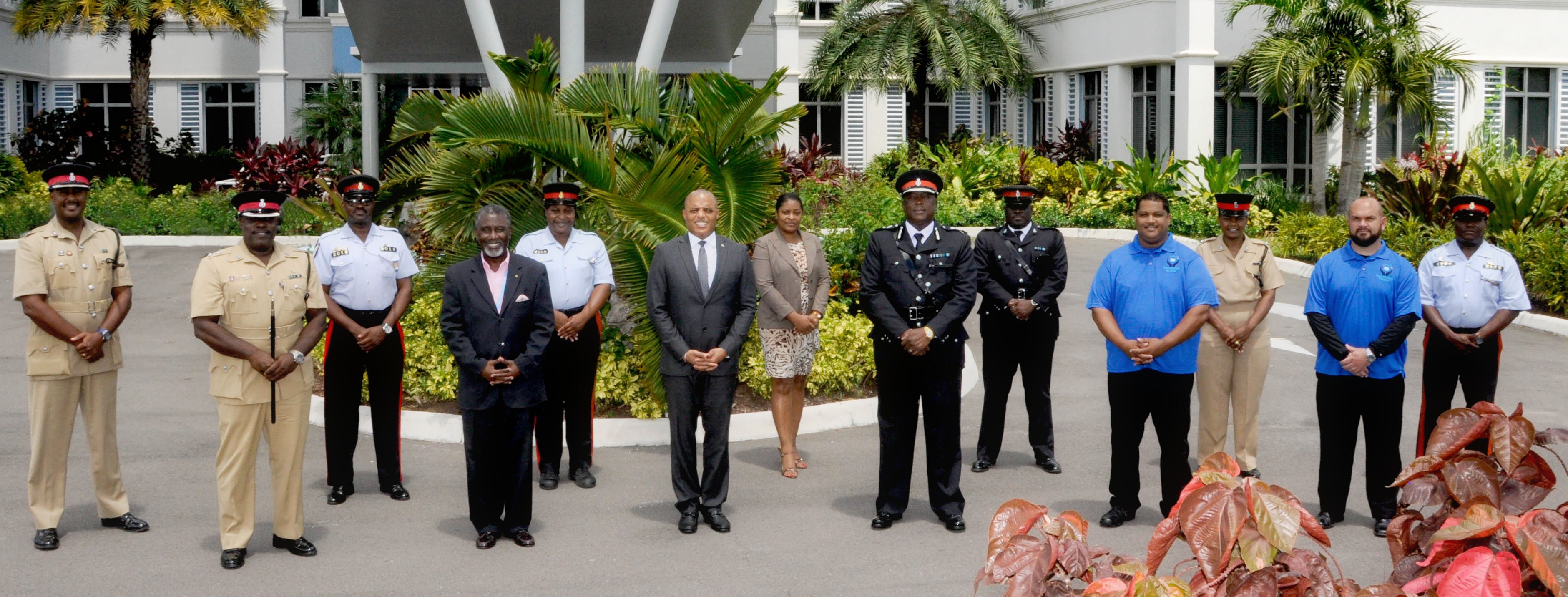
As early as the 1980s, the Royal Bahamas Police Force has been engaging in outstanding community policing through the implementation of various initiatives, collaborative relationships, and communication platforms. Following Sir Robert Peel’s nine principles of community policing, the Royal Bahamas Police Force established a community policing operational framework and created the National Neighborhood Watch Council (NNWC). The NNWC was created with the goal to collaborate with police to reduce crime and improve the overall quality of life in communities. From their efforts, the Royal Bahamas Police Force has seen a reduction in burglary and stolen vehicles. The council has also seen positive results in the resolution of missing persons cases and narcotics investigations. Overall, the Royal Bahamas Police Forces’ NNWC has been successful in promoting a better quality of life, a greater sense of security, and increased unity as well as pride among the residents.
2019 Winners
Small Agency
Mansfield, Massachusetts, Police Department
Since 2013, the Mansfield Police Department has undergone a reorientation of its operations model. Prior to the change, the organization’s structure was a predominantly traditional, reactionary model that primarily measured success solely by metrics such as arrests, police reports, and citations written. The heart of the reoriented policing model aimed to shift from a reactive model to one that emphasized a total immersion program of police operations into the community. This immersion program emphasized engagement and a focus on prevention by identifying core constituencies in the community. Once the core constituencies were identified, the police department and school department worked together to create a community calendar of activities with the goal of strategically aligning organizational goals with those of the communities by emphasizing regular face-to- face contact and a prevention and problem solving focus to community quality of life issues. In doing so it represents a reorientation of police operations, emphasizing problem solving, situational crime prevention, and community engagement over outdated traditional reactionary metrics. Additionally, the official social media of the department expanded from having a “just the facts” press release approach to using the platforms as a source of engagement and interaction by utilizing humor and humanizing approaches.
Midsize Agency
Jacksonville, North Carolina, Police Department
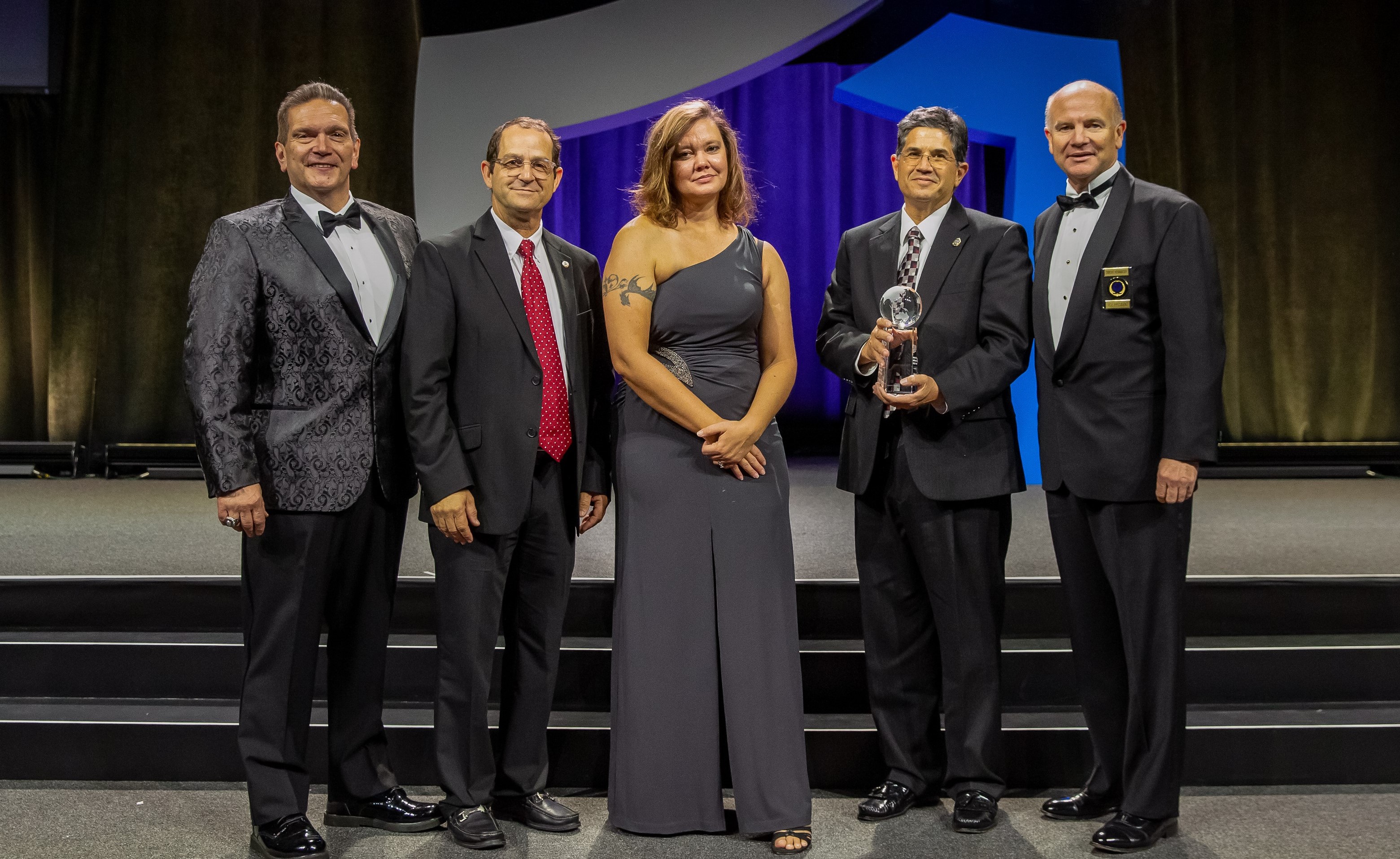
Jacksonville, North Carolina is the principal city of Onslow County. The county population consists of 70% active-duty military personnel and their families who, on average, have less than three years of residency. They are unfamiliar with available resources and services, and they lack the support structure that established family and friends can provide. Additionally, residents not associated with the military are more likely to be economically disadvantaged and lack health insurance. The efforts were in collaboration with the City of Jacksonville’s the “One City, Our City, My City” campaign. The focus of “One City” is to promote respect, caring, and collaboration among all community members which results in a better Jacksonville. Strategies were developed to counter misunderstandings about mental health and opioid abuse. The campaign also focused on providing a variety of communication and outreach opportunities to address the lack of mental health services as well as the quality of police interaction with the community. This has resulted in the reduction of use-of-force incidents.
Large Agency
Queensland Police Service, Australia
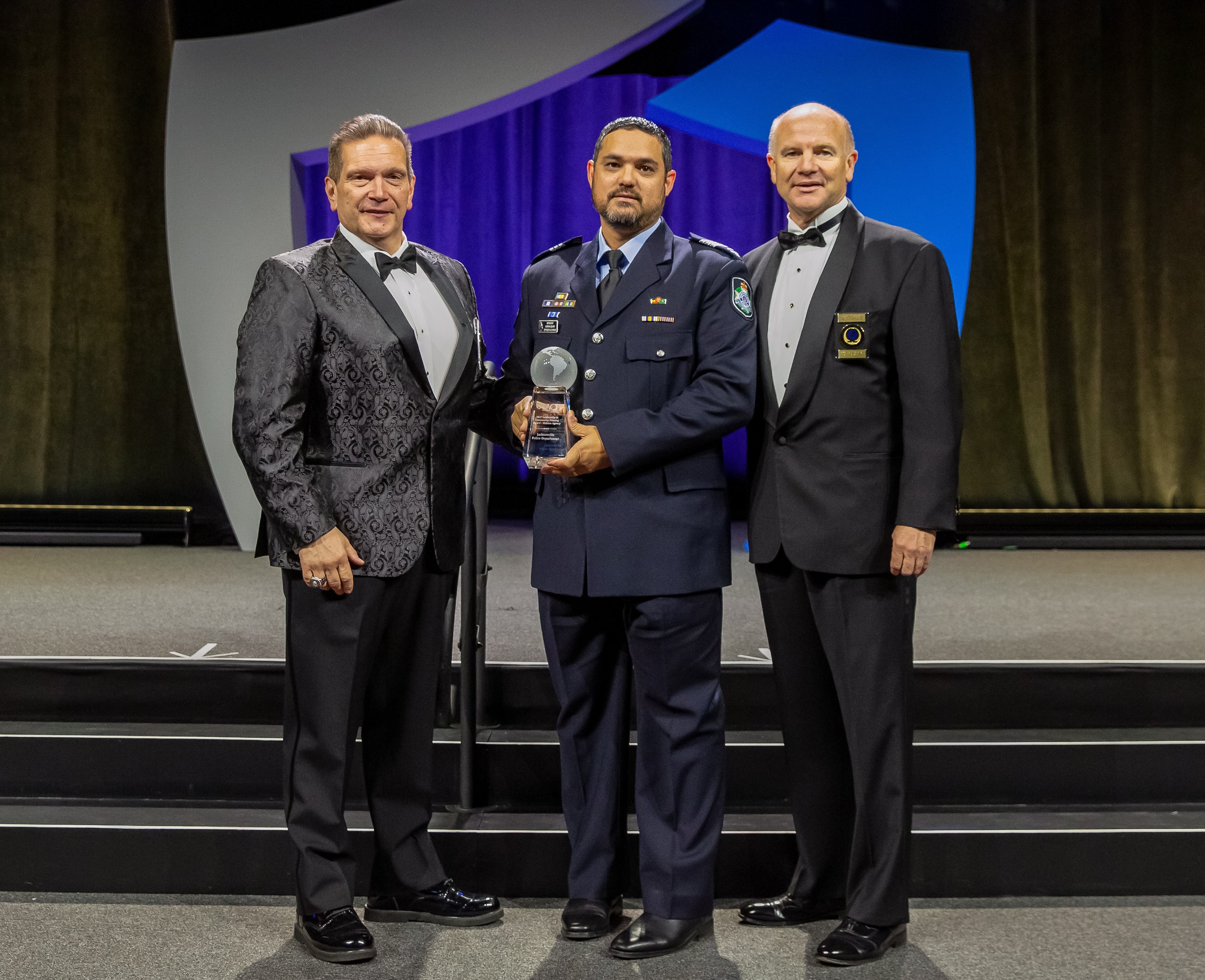
The Queensland Police Service (QPS) wanted to find a way to connect and build strong relationships with indigenous communities in their jurisdiction. To bridge this gap, they partnered with Gilimbaa Creative and key indigenous stakeholders to create various pieces of indigenous art. These art pieces captured the QPS storyline, while ensuring cultural appropriateness to complement the engagement and reconciliation process. Under the name “Look to the Stars Initiative,” the project demonstrates, in a tangible way, the cultural importance the QPS places on partnerships with indigenous communities. Through recognizing past trauma and historical injustices from previous policing strategies towards the indigenous communities, the QPS has effectively begun reconciliation in a culturally respective and significant way.
2018 Winners
Agency Serving Populations <20,000
Columbia Heights, Minnesota, Police Department
Columbia Heights is a small northeast suburb of Minneapolis. Following the April 2015 arrest of a terror suspect living in their jurisdiction, the Columbia Heights Police Department (CHPD) sought to improve their relationship with, and understanding of, the significant Somali immigrant population living in the community. CHPD worked to build trust and legitimacy within the area by diversifying their workforce and hiring East African officers who could effectively communicate with community members. Additionally, CHPD partnered with shareholders to build a neighborhood center, which acts as a part-time substation, where the community can have conversations in their native language with officers. It also serves as a hub for activities such as youth outreach, social services, and community assistance. The proactive work of the department has positively affected change within the community.
Agency Serving Populations 20,001-50,000
Sand Springs, Oklahoma, Police Department
The Sand Springs Police Department, located in Tulsa County in northeast Oklahoma, developed a Policing Plan after reviewing the U.S. Department of Justice report on incidents that led up to the 2014 unrest in Ferguson, Missouri. The department developed the plan to foster trust, align police policies with the community’s values, embrace technology, prioritize community engagement, invest in training, and focus on the well-being of officers. Since the original document’s inception, SSPD has developed two more editions, with a third currently in development. The Policing Plan serves as a road map to successful policing in the community. Officers and the public have direct input, and the City Council adopts each year’s plan by resolution. The process has led to both organizational and community buy-in, creating a community-oriented policing environment that achieves the identified goals of the plan.
Agency Serving Populations 50,001-100,000
Gloucester Township, New Jersey, Police Department
The Gloucester Township Police Department, located in Camden County, New Jersey implemented a community-wide violence prevention program called “3rd Gear Policing.” The program includes The Juvenile Unit Huddle, which was created in partnership with School Resource Officers to examine every call for service involving a minor. The Juvenile Unit Huddle aims to provide discreet assistance by identifying the root cause of the issue and a trusted adult in the juvenile’s life. 3rd Gear Policing also includes the Substance Abuse Visionary Effort (SAVE) Program, which places a Certified Drug Counselor in the Municipal Court to provide resources for those charged with minor offenses. These strategies have led to meaningful changes within the community, including a decrease in overall Uniform Crime Reports, first time offending youth recidivism, and repeat juvenile runaway reports.
Agency Serving Populations 100,001-250,000
Tallahassee, Florida, Police Department

The Tallahassee, Florida, Police Department has focused on community policing to build trust and legitimacy in order to decrease crime. They have accomplished this through a variety of successful initiatives such as the Neighborhood Public Safety Initiative (NPSI), Operation Safe Neighborhood (OSN), and the Community Oriented Policing and Problem-Solving Squads (COPPS). These programs seek to address public safety and respond to violent crime through a focus on prevention, education, community beatification, volunteerism, empowerment, strategic partnerships, increased visibility, and more. As a result of the implementation of these programs, the community has seen dramatic decreases in both violent and property crime, as well as increases in case clearance rates. The utilization of community policing strategies has forged lasting partnerships within the city, leading to improvement in the overall quality of life for residents and visitors.
Agency Serving Populations 250,000+
Plymouth County Outreach, Massachusetts
Plymouth County Outreach (PCO) is an opioid prevention and recovery coalition in Plymouth County, Massachusetts made up of 27 municipal police departments, Bridgewater State University Police Department, the District Attorney’s Office, and the Sheriff’s Department. PCO also has partnerships with dozens of non-law enforcement providers in healthcare, treatment, recovery, local coalitions, faith-based organizations, and regional hospitals. The goal is to provide resources and support to those suffering from substance use disorders and to their loved ones. In Plymouth County, all police departments have signed a Memorandum of Understanding to offer overdose survivors pathways to treatment, maintain a real-time overdose monitoring program, and commit officers to training and participation in overdose follow-up visits with other assistance providers. This program is recognized as a model to address the opioid crisis.
2017 Winners
Agency Serving Populations <20,000
Oelwein, Iowa, Police Department
Avoiding the truth is not a characteristic present within the Oelwein Police Department. Recognizing the often-rising level of mistrust for law enforcement, the Oelwein Police Department believes that it is up to each department to identify the problem and take steps towards guiding people to see the human side of law enforcement. In response, the Oelwein Police Department implemented a program called Project One to allow for more positive interactions between the public and officers. Project One allows officers to work alongside residents by having officers organize various events and activities throughout the area. This new initiative displays that one action, effort, gesture, community, team, or person truly makes a difference. It is a multi-faceted approach that utilizes the various talents and passions of the officers while working with various community groups and partners to accomplish tasks. When officers are allowed to develop a project around something that they enjoy doing, they have greater buy-in and they want to ensure that it is successful. Examples of those projects are:
- working with a local group that works with individuals with special needs to have a bowling outing where the officers are present and interacting with the participants
- partnering with other emergency services and the local campground to host “Camp with a Cop” where attendees are young boys that are guided on leadership and character
- partnering with a local nursery to plant trees in a park
- partnering with St. Jude’s Children’s Hospital to host a motorcycle poker run to benefit their patients
- food drives
- blood drives
- visiting nursing homes to serve meals to the residents
- utilizing officer donated funds to provide food gift cards to those in need during the holidays
A major lesson that the department has learned is that it does not matter if you are a department of 1 or 1,000, small projects and partnerships can be made. The path to the success of the program was not without bumps in the road. During the initial phases of this project, the struggle was getting the officers to have buy-in. Having officers that were trained and spent years having the warrior mentality to switch gears to a guardian mentality was not always an easy transition. In addition, the projects associated with the Project One initiative are constantly evolving and new programs are being implemented each year.
Agency Serving Populations 20,001-50,000
Monrovia, California, Police Department
A diverse community in Los Angeles County, the Monrovia Police Department has been committed to community policing for 26 years. Their style of community policing is called "Community Activist Policing" (CAP). Police officers are expected to become community "activists" to affect change and solve long-term problems, utilizing any resource available in the community. The agency has spent many years developing relationships and partnerships with stakeholders in their community. To this agency, community policing is not a tactic, technique or program; rather it is a proven way of delivering full-spectrum police services. During the latter years of the department’s 26 years of service, the Monrovia Police Department observed that trust in law enforcement was declining around the U.S.
The police department realized that if any kind of rebuilding was going to take place concerning the mistrust of law enforcement then they would have to reach out to the groups within the Monrovia community who currently feel a negative disposition towards law enforcement. The question was, how to get in contact with these individuals? The answer was in plain sight. The police department began to reach out to ministerial associations as well as the Monrovia Area Partnership, better known as MAP (who are apart of neighborhoods that have suffered gang violence). If the department had any hope of alleviating any feelings of mistrust between the community and its officers, they need to start building partnerships with these groups.
After about three months of relationship building, the ACT (Achieving Community Trust) initiative was formed. The ACT meetings created a safe space where residents and officers could relate to one another and feel at ease. Some impactful parts of the meeting include a specified time where officers could stand and share their personal life stories. One common goal of these meetings was to build trust that would, in turn, help diminish the fear between local community members and their police department. It was only through these efforts and years of relationship building with local faith leaders and MAP neighborhood leaders that the program could be a success. It was relationships with key individuals that proved to be the key to getting this collaborative effort accomplished.
Agency Serving Populations 50,001-100,000
Roanoke, Virginia, Police Department
In September 2016, Roanoke Police Captain Morrison met with leaders of Feeding America Southwest Virginia (FASWVA) about turning a Roanoke property into a community kitchen to better serve those northwest area neighborhoods. This building was previously a neighborhood restaurant known for its delicious home cooked meals and family environment. Over the last eight years this property became notorious for disruptive crowds, shootings, and other violence that disrupted the quality of life in the community. In search of ways to improve services to this community of Roanoke, FASWVA expanded Morrison's vision to a "community solutions center," that would include not only a community kitchen, but also household job training programs and a satellite office for the Roanoke Police Department.
The synergy was electric as churches, the local food bank, and Goodwill of the Valleys worked together to make a true difference in the community. Using a community block development grant secured with the help of the City of Roanoke, the partners formally announced the purchase of the property in the Spring of 2017.
This initiative is the first of its type that was driven by a law enforcement agency in collaboration with faith based, 501(c)(3) agencies, and community development grant funding to achieve outcomes within a distressed community.
The department learned that it doesn't take some big "think tank" committee to turn a vision into a reality. Sometimes the best ideas involve a single individual engaging several members of a committed community, and then working together with a forward-thinking agency and a devoted local government to move that community forward.
Agency Serving Populations 100,001-250,000
Fujairah Police General Headquarters, Minister of Interior, United Arab Emirates
In May 2011, community policing was introduced to the Fujairah Police General Head Quarters, Minister of Interior in the United Arab Emirates. Since then, the Community Police Department has followed a clear procedure to communicate with partners and stakeholders on a regular basis to activate partnerships as well as guarantee the partners' involvement by briefing them on continuing challenges in the area. These briefings enabled them to develop solutions and methods of implementation, establish roles, identify requirements, facilitate the review and evaluate solutions after their implementation, and collect feedback.
The Community Police Department recognized that drugs in school was a problem, specifically Tramadol pills and narcotics. In light of this increasing epidemic, a new initiative was developed "Anti-Narcotics and Addiction to Tramadol in Schools”. The main obstacle faced by the community police department and stakeholders in implementing these initiatives was convincing parents to undergo training to increase their awareness of this problem and the role they play in eliminating drug issues. Parents had to be convinced of the severity of the problem and that they were an essential component to the solution to end drug use. To overcome this difficulty, the initiative involved community ambassadors, students who had been selected and trained to convince parents as well as other students, who in turn persuade their parents to attend these lectures.
By the end of the year, the strategic planning group measured the benefits of this initiative. Results uncovered through the assessment included a reduction in the number of drug cases. While there was an increase in arrest of suspects in drug cases in 2016 there were no cases of addiction found among students in 2016.
Agency Serving Populations 250,000+
Arlington, Texas, Police Department
Arlington Police Department (APD) is being acknowledged for their collaborative efforts and overall success with the Walmart Restorative Justice Program. The Walmart Restorative Justice Program is an illustration of how law enforcement can be one piece of a solution, but that a community response is required to take ownership of community problems. Using community policing practices as a foundation coupled with the problem-solving components of geographic policing, the agency analyzed that the pre-existing conventional strategies for theft and shoplifting calls for service that presumably focused on offender detection and crime prevention were ineffective.
The key lesson learned from the use of the partnership’s tactics and strategies encompasses the understanding that enforcement is not solely incumbent on arrests, rather exercising opportunities to serve as change agents to community issues and quality of life concerns.
Best Use of Technology in Support of Community Policing Initiatives Special Recognition
Halton Regional Police Department, Ontario, Canada
The strength of communities is a product of addressing shared priorities through strong relationships and collaborations. Community policing in Halton is a philosophy based on the concept that police officers and private citizens work together, in partnership, resulting in creative ways to solve community problems related to crime, fear of crime, social and physical order, and neighborhood decay.
Until recently, Halton’s approach to operations was siloed to reflect the four municipalities it served. This framework contributed to a lack of consistency and connectivity, not just internally, but also in how the agency partnered with community agencies and services. In the agency’s new regional mobilization framework, the Community Mobilization Officers came together to share successes and challenges and seek commonalities, thus providing opportunities for joint learning, encouraging greater connectivity, and providing clarity of expectations. As of June 2017, the Situation Table, which is a gathering of key community partners who meet and discuss elevated risk cases, has intervened to support more than 415 situations of acutely-elevated risk. The goal is to find the most appropriate place, and approach, to address problems and mitigate risk. Halton Situation Table remains the only Regional Table in operation in Ontario. Halton Region's ranking as the safest regional municipality in Canada year after year is a testament to the strength and depth of the collaboration between the Halton Regional Police Service and the many agencies and organizations who serve the residents.
At times, collaboration across various sectors can bring about various inefficiencies, but in their experience, Halton has seen greater efficiencies with this approach. Agencies and police services must continually seek opportunities and partnerships outside of their sectors to better serve the most vulnerable in communities. Agencies and services must be committed to engaging with each other in meaningful ways and participate in active listening to identify gaps in services and system inefficiencies. When community partners collaborate, community safety and well-being increase.
Special Homeland Security Recognition
Office of Superintendent of Police, Bastar, India
Bastar has been at the epicenter of instability for the last 3 decades. This environment has created a number of challenges that have led to the under development of the region and widening of the trust deficit between the local tribes and the police.
The police department decided to implement new dimensions of community policing through a program titled Amcho Bastar, Amcho Police (Our Bastar, Our Police). This initiative involves all stakeholders to forge a new cooperative relationship to reduce the incidents of violence, to protect the lives of civilians and security personnel, to create development inducing infrastructure and to reclaim the lost ground by instilling trust among the people. During district crime meetings, it was determined that the traditional principles of city policing were not applicable in the community and a more tribes-friendly proactive approach needed to be used.
For the department, the initiative output was not the only achievement. The other success was the change of attitude and behavior of the people triggered by the program towards the police as well as their own safety and well-being, proving that the said initiatives have successfully acted as “consciousness-raisers”. The Amcho Bastar, Amcho Police initiative has been a journey of learning and organizational introspection.
2016 Winners
Population Fewer than 20,000
National Capital Park, Maryland, Police Department, Prince George’s County Division
Population of 20,001 to 50,000
Menlo Park, California, Police Department
Population 50,001 to 100,000
No winner was selected in this category
Population of 100,001 to 250,000
Abington Township, Pennsylvania, Police Department
Population of 250,000+
Office of Superintendent Police, Balod District, India
2015 Winners
Population Fewer than 20,000
RCMP, Thompson Detachment, Manitoba, Canada
Population 20,001 to 50,000
Shakopee, MN Police Department
Population 50,001 to 100,000
No winner was selected in this category
Population 100,001 to 250,000
Dayton, OH Police Department
Population 250,001 +
New York City, NY Police Department
